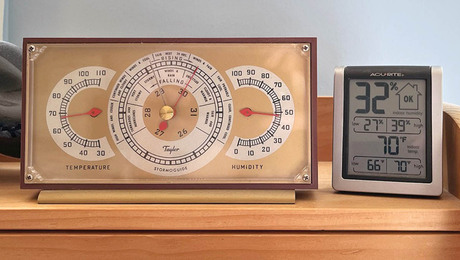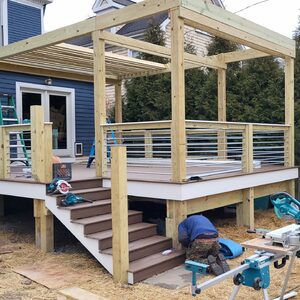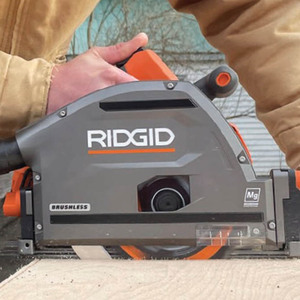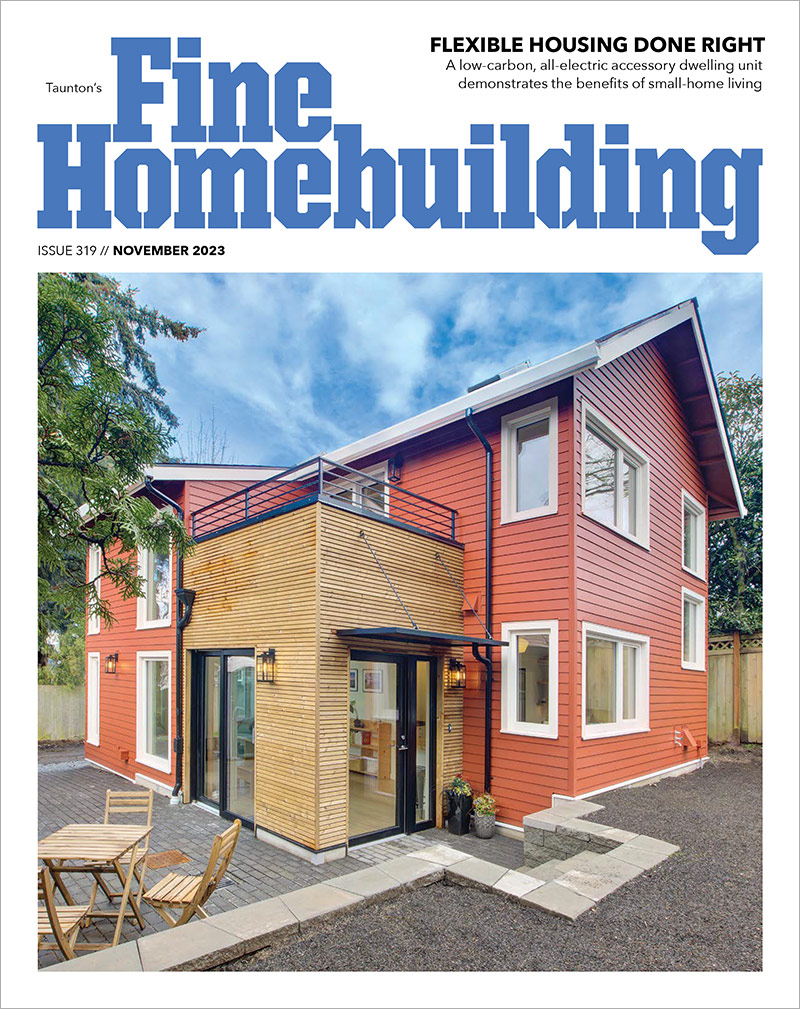I asked this in the Breaktime forum and thought I should give the general homeowner a chance to do the same. I live in the southeast part of the United States and natural gas is expected to go up in price by some 56.2% according to the feds.
I heat the home by two gas furnaces, the water by gas water heater, and have a gas cooktop in my track house. In the five years (this will be my fifth Winter in it) I’ve owned this house (bought new), the worse Winter for the wife and I was a $250-300 natural gas bill for one month.
The idea of a $400-500/month bill is scary in that during the Winter months we never had the thermostat above 65ºF during the day while we were home, and 55ºF while we slept or were not home. So, you can imagine how nervous the outlook for this Winter will be.
I thought about changing out the water heater for an electric unit, maybe even using a tankless solution. The coldest Winter we’ve dealt with so far was combatted with a couple of electric blankets and warm clothing. I thought about removing the NG burner in the fireplace and using it with wood (not masonary on the exterior side), but I haven’t used a fireplace in years.
We’ve got about 2700 SqFt of home not including the 1100-1200 of basement. Its rather daunting to face NG bills like this for two people. $7.50/day-person is expected to be the minimum for this Winter. I hope everyone else’s heating bills is better, and wish all of you luck. Are changes in your future also to combat the dramatically increased heating costs in your home?



















Replies
Hi Nuke,
I live in Connecticut and we use oil for heat and hot water. We signed our oil contract early (in the summer) in order to get a price ceiling. We also installed programmable thermostats in all three zones of my house this past weekend so that the heat will go down when we're at work and when we go to bed. It will come on when we return home and when we get up in the morning.
I also normally put up drapes on the bottom half of two of my largest windows. I'm also thinking about putting a sheer fabric curtain in front of my sliding glass door to help reduce heat loss.
I am concerned about my parents, who are retired, because they use gas heat, which is more expensive than oil. They're not interested in having me install a programmable thermostat, but I'm going to help them to put up curtains.
I hope others will join in with their ideas.
Sheila Torres
Editorial Assistant
Edited 10/14/2005 4:14 pm ET by sheilatorres
Almost everywhere in the country natural gas is cheaper than electricity, so I'd be reluctant to switch your water heater. But you have the current rates from your bills and you can assume some increase in both, for example, 50% gas 20% electricity, or whatever you wish, and do the calculation as to which will be more expensive to heat water with. You can work in the cost of a new electric heater too if it appears electricity might be cheaper.
Fireplaces are usually net losers of heat. More heat from the house goes up the chimney than enters the room from the fire. If wood is available a wood stove is a much better solution.
Are you fully insulated? If not, there's where your savings would be.
This is the second time I've heard this, but in neither instance has anyone given a means for a homeowner to sit down and perform calculations. Also, it doesn't take into account regional and local pricings. It may be the described case in one location, and not in the other.
WHen I caompare the increases of electricity for Summer over Winter, and gas increases for Winter over Summer, gas increases (previously) by a factor of 8-fold (goes from $30 to $250) while electricity goes increases by a factor of 3-fold (goes from $60 to $180) on a monthly basis. And my electricity hasn't gone up much this year, but gas, NG, is going up at least 56%. Now how much 'cheaper' is NG?
While I contribute some of the lowering Winter temperatures to increased gas consumption at the water-heater, in the Winter its mainly heating of the air, which does a terrible conditioning of the air (uber-dry), consumes the bulk of NG.
I need a real means to detrmine which is really cheaper in my area and under the current inflationary circumstances.
To compare costs you look at the cost for a unit of energy for gas compared to the cost per unit of energy for electricity. Then, since electric appliances are more efficient than gas, you adjust the cost to account for the efficiency.
You get the cost per unit of energy from your current bills.
Here's an example with the actual numbers from my utility bills. My electricity cost is 12¢ per kW-h, or $0.12 per kW-h. My gas cost is $1.12 per CCF. I will convert CCF to kW-h so I can see which is cheaper.
CCF is an abbreviation for hundreds of cubic feet. The amount of energy in a cubic foot of gas varies a percent or two with the well it was obtained from, but is very close to 1 CCF containing 1.03 therms of energy. You may already be billed in therms rather than CCF. Then convert therms to kW-h. One therm equals 29.3 kW-h.
Here's the conversion for my rates.
(1.12 $/CCF) x (1 CCF/1.03 therms) x (1 therm/29.3 kW-h) = 0.037 $/kW-h.
0.037 dollars per kilowatt-hour equals 3.7¢ per kW-h. So electricity costs me 12¢ per kW-h and natural gas costs me under 4¢.
An electric water heater is close to 100% efficient, and a gas water heater is perhaps 80% efficient. So you have to burn more than 3.7¢ of gas to get 1 kW-h of energy into the water, in particular 3.7/0.80, or 4.6¢.
Now if electricity rates rise 20% my electricity would cost me 14.4¢ per kW-h and if gas rates rise 50% my gas would cost me 5.6¢ per kW-h. Even in an 80% efficient appliance the gas would only cost me 7¢, so in my case it would still cost half as much to heat water with gas than with electricity.
The only problem with this is that it assumes the unit cost of energy is constant, even just within a season. Unfortunately, this isn't my case. The rate changes depending on how much energy I use. In the Winter, the first amount of electricity I use is X, then the next additional amount is Y, and anything additional beyond X+Y is rated Z.
Oh, X, Y, and Z change for Summer/Winter conditions.
Maybe the electric blankets and wood stove (not fireplace). Not sure about the efficiency of gas/wood fireplaces of the drop-in variety compared to a wood stove.
There are no constants in life. Run the numbers with what you have. If one is clearly cheaper than the other you have your answer. If they flip flop back and forth with the time of year, then it doesn't matter which you choose; the savings of one over the other would be negligible.